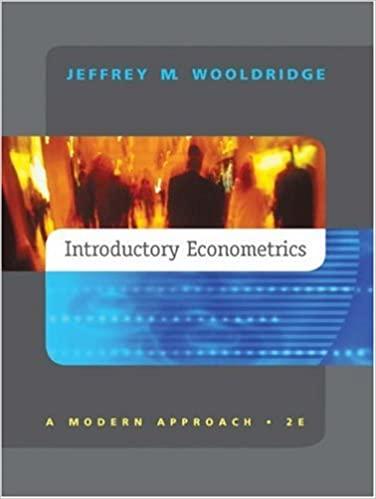Question
In our review of the economics of bubbles and busts, Minsky's theory has seemed helpful in explaining how financing changes and bubble evolve. Minsky predicted
In our review of the economics of bubbles and busts, Minsky's theory has seemed helpful in explaining how financing changes and bubble evolve. Minsky predicted that as a market or an entire economy expands over time, financing becomes ever riskier, stretching the bounds of sound business planning, and eventually creating a bubble ready to implode from some external event or even sheer exhaustion of growth possibilities. This suggests that the boom-bust cycle is quite systematic and predictable, maybe even inevitable. On the other hand, we have read extensively from the Financial Crisis Inquiry Report, which provides a detailed analysis of the origins and evolution of the 2008 financial crisis. That report cites numerous specific failures of policy and institutions that directly contributed to the crisis-from credit ratings agencies to business ethics. It concludes, overall, that "This financial crisis was avoidable," suggesting that different policies and practices would have produced a different result. Both of these theories may have seemed plausible when we reviewed them, but it does not seem possible that both can be true. Explain which you think is correct, and why. Was the 2008 financial crisis in fact the inevitable result of progressive over-expansion. Or was it an avoidable accident, so that other policies and practices would have produced a different outcome? If you choose to argue for Minsky's theory, explain whether you think there is any role for government policy to alter the outcome, and how that might fit into this theory. And do any policies just postpone the inevitable, or can they actually prevent Minsky's boom and bust cycle? What examples or other reasons support your view? Alternatively, if you agree with the FCIR's view, explain not only what policies you think could prevent a boom and bust cycle, but also what evidence or other reason you have for believing that. Have such policies ever succeeded in prevention? Is Minsky therefore simply wrong in observing how regular and predictable the boom/bust cycle appears to be?
Step by Step Solution
There are 3 Steps involved in it
Step: 1

Get Instant Access to Expert-Tailored Solutions
See step-by-step solutions with expert insights and AI powered tools for academic success
Step: 2

Step: 3

Ace Your Homework with AI
Get the answers you need in no time with our AI-driven, step-by-step assistance
Get Started


